Rt Rev Dr Guli Francis-Dehqani arrived in the UK as a refugee from Iran following her brother’s assassination. Her extraordinary life story has given her a passion for justice and an inability to keep quiet, despite what it might cost her
The Bishop of Chelmsford, has no desire to be “a controversialist”.
“I’m not looking to stir the pot,” Bishop Guli tells me, as we dive into yet another hot button topic during our hour-long conversation. So far, we’ve tackled feminism, cross-cultural mission, colonialism, religious persecution, female leadership in the Church and refugees. Now, we’re moving on to the Middle East.
Yet Bishop Guli is no polemicist. Softly spoken and thoughtful, the cost of the “deeply personal” attacks that come her way every time she speaks out on an issue show clearly on her face as we talk. She is, she says, increasingly frustrated at the lack of nuance in our national debates and much more interested in what she calls “the grey spaces between the binaries”. This is perhaps no surprise considering her background. “My whole identity is predicated on a complexity and it’s not easy to define clearly what I am or what my roots are,” she says.
Bishop Guli’s father was a Muslim-born convert to Christianity who later became the Anglican Bishop in Iran. Her mother was born in Iran to second-generation British missionaries. Following the Islamic revolution of 1979, persecution of Christians in the country increased rapidly and her parents narrowly survived an attempted assassination. Just months later, her brother was murdered, aged just 24. He was killed, Bishop Guli says, as “a scapegoat” for her father.
The family fled to the UK when Bishop Guli was a teenager. The Christian faith that her parents modelled to her was robust and uncompromising – much like her stance today on the social justice issues that she regularly speaks out on.
Her Chelmsford diocese stretches from Kemi Badenoch’s safe Conservative seat in the north of Essex, through the Vote Leave heartlands of Southend and Thurrock, to the diverse London boroughs of Barking, Newham and Redbridge. Representing them well – and reaching out to them with the gospel – is undoubtedly a challenge, but if there’s one thing you can rely on Bishop Guli not to do, it’s shy away from the hard conversation.
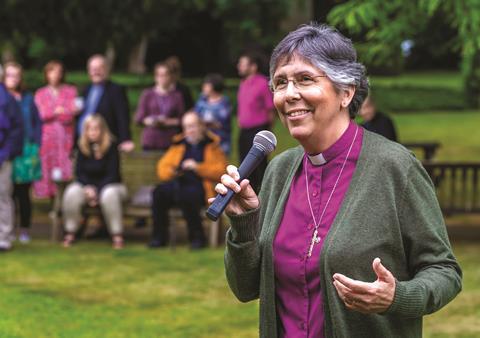
Tell us about your childhood and how you came to the UK.
I had what most people would consider an unusual upbringing, betwixt two worlds, really.
I was born in Iran into the very small Anglican community there but outside our doors was an entirely Muslim environment. At school, I was the only Christian. I grew up speaking both languages and with a mixture of Eastern and Western cultural influences. My whole identity is predicated on a complexity and it’s not easy to define clearly what I am or what my roots are.
It’s increasingly difficult to have a nuanced conversation about anything
It was very happy childhood, until the revolution in the late 1970s, which turned our lives upside down. The Church became a target because we were essentially made up of converts from Islam, and in the current version of Islam in Iran, apostasy is considered a sin as well as a crime.
Our institutions were closed down. Many people left, financial assets were frozen, people were imprisoned. In May 1980, events culminated in the assassination of my brother. My father was out of the country at the time, so we left to join him [in the UK]. We came expecting to be home within months, but that never happened.
How did your family’s faith survive?
My parents were extraordinary people. They had a very deep, authentic faith. I still recall a sermon my father preached in the early stages of the revolution. He said: “We preach forgiveness, we preach reconciliation, we preach being people of goodwill – and that is going to be tested. Our faith is nothing if we don’t live it out when we enter times of trial and temptation.”
My father spent his life coming to terms with the fact that if he’d been in Iran [at the time of the attack] his son wouldn’t have been murdered. It was a very painful journey, but one they travelled together. I absorbed a lot of that, and then had to make choices about whether I was going to follow a similar path.
It’s not straightforward. There are lots of questions and doubts – but I haven’t found a better way.
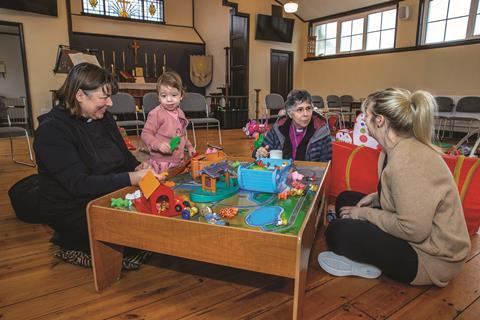
Was it ever a struggle for you?
I don’t think forgiveness is ever easy. It’s about the desire to want to forgive.
My father wrote a prayer for my brother’s funeral that’s become known as ‘the forgiveness prayer’. He doesn’t, at any point, say: “I forgive.” He asks God to forgive, which is what Jesus did on the cross, what St Stephen did as he was being stoned. When we struggle with forgiveness, perhaps it’s enough just to want to move in that direction; to live with a posture of forgiveness.
Have I ever struggled to stay in faith? Yes, probably; in my 20s I became a bit disillusioned. I tried to leave it all behind, but I wasn’t particularly good at it! I still move between the shores of certainty and periods of doubt and questioning and darkness. I think that’s just part of faith. We’re not automatons.
Ultimately, the knowledge of God’s love with us through the trials is the most reassuring thing. So why on earth would I walk away from it? If we’re willing to see it, God is present in all of it. It’s a love that never lets you go and is perhaps most potent at the darkest times. That’s the paradox and the mystery of the Christian faith.
You can see that when you look at how the persecuted Church is growing under pressure, can’t you?
There are extraordinary stories of places of persecution where the Church is growing. There are also places, like Iran, where persecution is suffocating the Church. Numbers aren’t growing because [the Anglican Church] is not permitted to baptise, to bring new people in.
Numbers are so small as to be almost insignificant. For almost 40 years, there’s been no leadership, programmes, plans or strategies and yet, it seems that the Holy Spirit has had space to breathe. Maybe not in the Anglican Church, because of the strictures around it, but many Iranians are coming to faith through underground church movements.
The Church has typically not been at its best when it’s been largest and most influential
There’s something about the persecuted Church offering a gift to the Western Church, to not be anxious about whether we’re small or large because the fruits of our efforts are, in the end, for God to work with. When given space, the Holy Spirit will do what the Holy Spirit does.
The call on our lives is to be faithful in prayer, worship, gathering as a community and also in service, loving our neighbour and looking outwards to the world. If that bears fruit with numbers, that’s fantastic. But sometimes it doesn’t – and that doesn’t mean small churches are any less valued by God.
The Church has waxed and waned in size over the centuries. It’s typically not been at its best when it’s been largest and most influential.
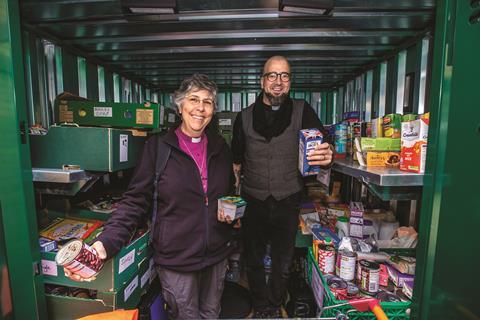
As a bishop, you sit in the House of Lords. There’s been some debate about whether Lords Spiritual should continue to hold seats. Do you feel they should?
I’m bit conflicted, if I’m honest. Do we have a relevant voice? Absolutely. We represent many communities and so we speak out of experiences in those communities.
Would I fight tooth and nail to keep our place there? I’m not sure. The relationship with the establishment and power structures is a really uncomfortable one, and I’m not sure it’s always helpful for the Church.
In the end, it’s for others to decide. While we’re there, let’s use our positions for good.
But you obviously feel that, as a Christian, you should be speaking out on issues of social justice?
Yeah, very much so. We can all do that but the position I hold just gives me a particular platform.
It’s increasingly difficult to have a nuanced conversation about anything. It just gets immediately pulled to the extreme binaries, and I find that deeply frustrating. Whenever I do an interview, even like this one, it ends up reduced to a headline which takes you to an article behind a paywall – so people’s impressions [are based on] one line or one aspect of what you said. Most issues don’t fit neatly into that.
It’s costly at times. I get heavily criticised and it’s very unpleasant. Some of the attacks are deeply personal. But we were never promised an easy ride. It’s part of the sacrifice and the calling. It would feel wrong for me not to do that in my role.
You recently co-authored a letter criticising the “acceleration and intensification of settlement construction, land confiscation and home demolition in the West Bank” by Israel and calling on Western governments to do more to stop it. Why did you decide to write this?
It is very easy, in this conflict, to be so worried about saying the wrong thing that you don’t say anything at all. And the silence felt wrong. The letter has, inevitably, pulled people to the binaries; either people are appalled by it, or very grateful for it.
It is absolutely not meant to say that, because we are speaking up on behalf of Palestinian Christians and Muslims, that we’re not appalled by the brutality on 7 October or other actions that Hamas have been involved in. But this does not need to be a zero-sum game. This is about calling for ceasefire and a solution that brings justice for everybody.
I know it’s complex. I don’t want to be a controversialist. I’m not looking to stir the pot, but I have to speak into it as well as I can. An important part of it, for me, is demonstrating support for the Diocese of Jerusalem and Christians there. That province is particularly near to my heart because it’s the province in which the Diocese of Iran is also based.
What was it like visiting Israel and the West Bank recently?
It was very, very intense. The sense of trauma which people are living with was palpable; absolute shock and disbelief among many Jewish people that an attack like 7 October could have happened; trauma on both sides and an inability to make any connection between the two narratives.
It felt like the news outlets that people listen to, the stories they tell one another, are not engaging. There are some brave individuals and groups who are trying to cross those boundaries, and it’s very inspiring, but it’s hard work.
Are Christians being affected by land confiscation in the West Bank?
Yes. The Kisaya family that we mentioned [in the open letter] are just one example.
Sometimes it’s set out as a Jewish-versus-Muslim thing but Palestinians have always been a mix of Christian and Muslim, and they’ve lived peaceably alongside one another for the most part.
I visited the church in the West Bank while I was there and met with the family of a woman called Layan Nasir. She’s a Palestinian Christian, 24 years old. About six months ago, she was arrested in the middle of the night and incarcerated. No charges have been brought. Her family have not been allowed to see her. I spoke with her mother and committed to pray every day for Layan. I have a candle in my chapel that will remain lit until she’s released.
I know what it’s like for a Christian community to feel abandoned and beleaguered. I want to show solidarity to the Diocese in Jerusalem for the work that they do and the witness they maintain in these incredibly difficult times. And I’m a mother; I’ve got children the same sort of age.
What would you like to see the international community doing?
There’s a lot of talk about innocent lives being lost in Gaza, yet the international community is still providing arms to Israel. The International Court of Justice has spoken out, but there is a fear of conflating criticism of the Jewish state with being antisemitic. There is no place for antisemitism, but neither should any government be above the law.
The way in which the [Israeli] state currently condone – or at least don’t act against – those who are dispossessing Palestinians of their land, I think we have to stand against it. I know I’ll get criticised for saying this, but until governments start to speak out, we may be stuck where we are.
The Church in the UK has been through its own challenges in recent years – how do you feel about its future?
As the Church of England, we are quite anxious and fearful about our survival and our influence. It concerns me sometimes that we’re mirroring the anxiety and fear that is all around us in society.
I long for the Church to be a place where we can model a different way of being that demonstrates that we trust God for the future, and that the future isn’t ours to control.
The future is in God’s hands and, every day, we all have to surrender the things that we’re worried about and can’t control back into God’s hands. We do that as individual Christians, and I hope we will learn to do it more and more as a Church as well.
To hear the full interview listen to Premier Christian Radio at 8pm on Saturday 16 November or download The Profile podcast premier.plus/theprofile













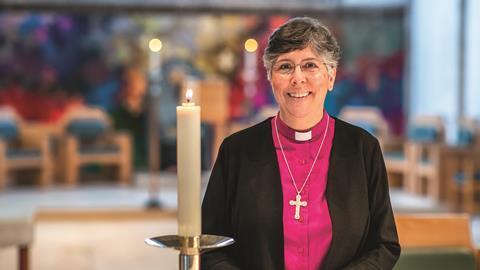

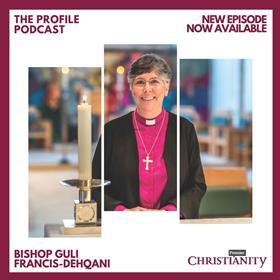
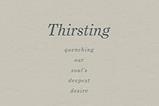

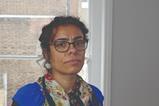




















No comments yet